
PANTS Rules

Teach Them Wisely

Don’t Feed The Demons
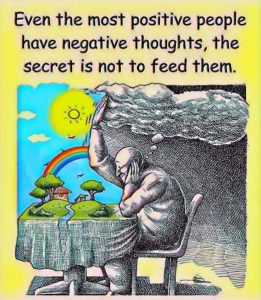
A Journey Of A Thousand Miles
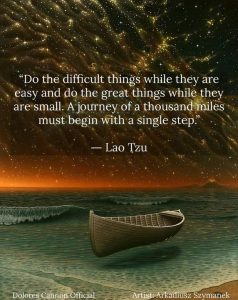
I had not heard the first two pieces of advice in this quote. Makes it all the more profound.
If Suicide Ever Crosses Your Mind
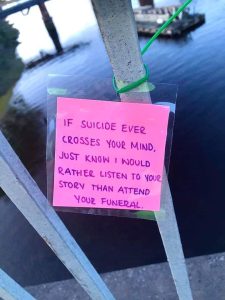
Engineered Reality
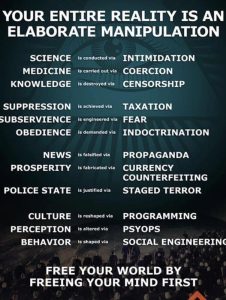
Attention Parents and Teachers
This is an article that needs to be repeated:
Every Friday afternoon Chase’s teacher asks her students to take out a piece of paper and write down the names of four children with whom they’d like to sit the following week. The children know that these requests may or may not be honored. She also asks the students to nominate one student whom they believe has been an exceptional classroom citizen that week. All ballots are privately submitted to her.
And every single Friday afternoon, after the students go home, Chase’s teacher takes out those slips of paper, places them in front of her and studies them. She looks for patterns.
Who is not getting requested by anyone else?
Who doesn’t even know who to request?
Who never gets noticed enough to be nominated?
Who had a million friends last week and none this week?
You see, Chase’s teacher is not looking for a new seating chart or “exceptional citizens.” Chase’s teacher is looking for lonely children. She’s looking for children who are struggling to connect with other children. She’s identifying the little ones who are falling through the cracks of the class’s social life. She is discovering whose gifts are going unnoticed by their peers. And she’s pinning down- right away- who’s being bullied and who is doing the bullying.
As a teacher, parent, and lover of all children – I think that this is the most brilliant Love Ninja strategy I have ever encountered. It’s like taking an X-ray of a classroom to see beneath the surface of things and into the hearts of students. It is like mining for gold – the gold being those little ones who need a little help – who need adults to step in and TEACH them how to make friends, how to ask others to play, how to join a group, or how to share their gifts with others. And it’s a bully deterrent because every teacher knows that bullying usually happens outside of her eyeshot – and that often kids being bullied are too intimidated to share. But as she said – the truth comes out on those safe, private, little sheets of paper.
As Chase’s teacher explained this simple, ingenious idea – I stared at her with my mouth hanging open. “How long have you been using this system?” I said.
Ever since Columbine, she said. Every single Friday afternoon since Columbine.
Good Lord.
This brilliant woman watched Columbine knowing that ALL VIOLENCE BEGINS WITH DISCONNECTION. All outward violence begins as inner loneliness. She watched that tragedy KNOWING that children who aren’t being noticed will eventually resort to being noticed by any means necessary.
And so she decided to start fighting violence early and often, and with the world within her reach. What Chase’s teacher is doing when she sits in her empty classroom studying those lists written with shaky 11 year old hands – is SAVING LIVES. I am convinced of it. She is saving lives.
And what this mathematician has learned while using this system is something she really already knew: that everything – even love, even belonging – has a pattern to it. And she finds those patterns through those lists – she breaks the codes of disconnection. And then she gets lonely kids the help they need. It’s math to her. It’s MATH.
All is love – even math. Amazing.
Chase’s teacher retires this year – after decades of saving lives. What a way to spend a life: looking for patterns of love and loneliness. Stepping in, every single day- and altering the trajectory of our world.
TEACH ON, WARRIORS. You are the first responders, the front line, the disconnection detectives, and the best and ONLY hope we’ve got for a better world. What you do in those classrooms when no one is watching- it’s our best hope.
Copied for inspiration to save more children.
An Open Letter To The People Of Israel

I have just watched a video where three ex-members of the Israeli Defence Force (IDF) express incredulity over the lack of early warning of the Hamas attack on Israelis and the lack of standard procedure applied in the area where Hamas breached border security and the 12 hour delay to respond.
They said the surveillance is so sophisticated that soldiers watching the video screens of the area know when a bird approaches the border, let alone when a group of terrorists blow up part of the fence.
One said there was no way this could have occurred without complicity by senior officials.
Which when you consider that part of the border where Hamas attacked was deliberately left unmanned by a transfer of regular guards from there to the West Bank, the fact that the music festival was moved to that area with two days notice, and the Egyptians warned Israel that something major was coming, all the pieces of the jigsaw puzzle appear to be in place for it to warrant being investigated as a false flag operation to justify the genocide of Palestinians and the seizure of their land.
I have a suggestion of how to repatriate the hostages taken by Hamas.
Tell Hamas you need 30 days to organize a trade. Organise a cease-fire.
In that time convene an impartial, independent, top level investigation into the above data to determine if there was complicity by anyone, from the PM down.
If there was, all the person’s assets should be used to provide reparations to the injured and families of the deceased and they should be traded to Hamas for the hostages.
Once you have removed the persons standing as barriers to peace then look at the actions that would bring about a lasting, equitable resolution to that which stands in the way of peaceful coexistence.
It is shockingly barbaric that this so-called civilization persists in trading an eye for an eye after continually and consistently proving that it does not bring peace.
Don’t Text And Drive!
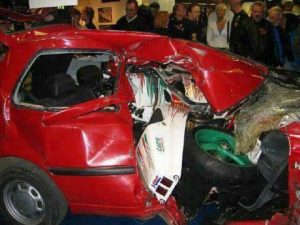
The Honda crotch rocket rider was traveling at approximately 85 mph.
The VW driver was talking on a cell phone when she pulled out from a side street, apparently not seeing the motorcycle. The rider’s reaction time was not sufficient enough to avoid this accident.
The car had two passengers and the bike rider was found INSIDE the car with them.
The Volkswagen actually flipped over from the force of impact and landed 20 feet from where the collision took place.
All three involved (two in the car and the bike rider) were killed instantly. This graphic demonstration was placed at the Motorcycle Fair by the Police and Road Safety Department.
Pass this on to car drivers or soon to be new drivers, or new motorcycle owners and especially everyone you know who has a MOBILE phone!!!
A picture is worth a thousand words.
Save a life. Stop talking on mobile phones and Texting while trying to drive.
The life you save may be your own….. Or mine…
Keep passing this on so everyone will see what can happen by using a mobile PHONE while driving.
